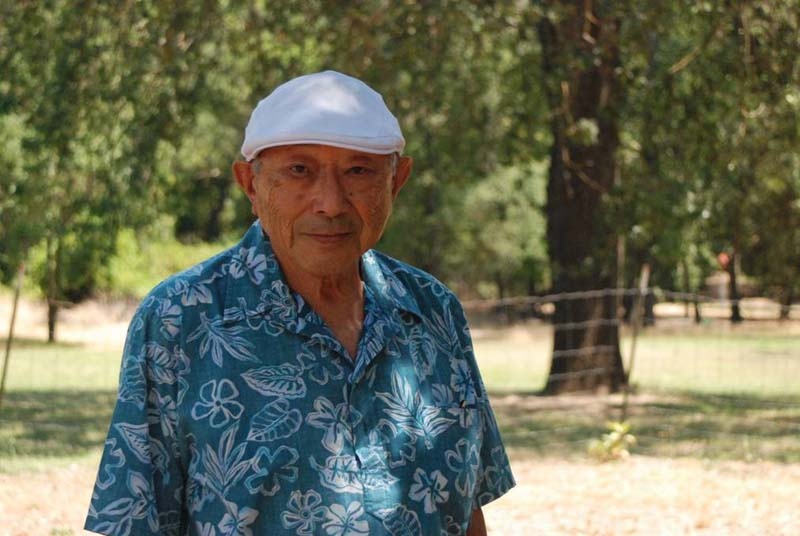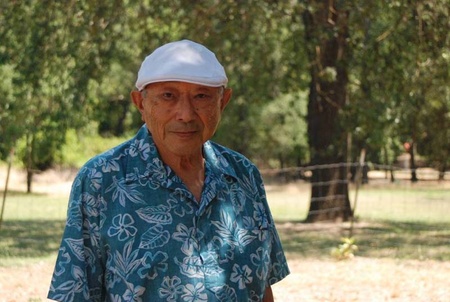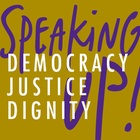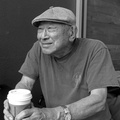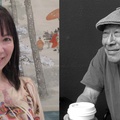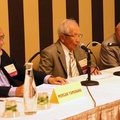It was in March of 1946, the morning after my brother, sister, and I came out of camp. We had been given $25 each and a free ride on the train. The train seemed better than the old milk train with the shade drawn that took us to Tule Lake in 1942. After being held until almost the closing of camp, we were finally released. I guess we were used to being confined, but camp was nearly deserted. We were beginning to wonder when, if ever, we would be given the notice to leave. Mother was already out and living with two other families in Loomis. We would join her there.
It seemed like a brand new day in Sacramento when we got off the train. As we walked the once familiar streets, the air was so clear and pure that I wanted to drink it. The pristine clarity of everything in the sunlight—the trees, the flowers, the lawns, the houses, the cars moving in traffic, the people going about their lives—was like seeing the world for the first time. Voraciously, I tried to take it all in, through the pores of my skin, deep inside, for replenishment, for nourishment, for renewal. So this was the outside world that we had longed for.
Being free, I was suddenly hit with the thought that I had spent the past four years of my life in prison where time had stopped. I too had slowed to a standstill, trying to shield myself so I wouldn’t go out of control, enduring day to day, not thinking, just vegetating. There had been no cells of course, only the barbed-wire fence and the guard towers that were confining enough, both physically and spiritually. I would carry the psychological scars for the rest of my life.
And then we saw him coming toward us, someone familiar, another Japanese American, a comforting sight. He had been at Tule Lake and had gotten out a few months before us. Of course, we knew him. I had known him in the Young Buddhist Association. He had on striped overalls, looking like he was employed at a fish market or a grocery store. He was pushing a hand truck. We were ready to stop him and say hello and we expected him to greet us too, even welcome us to the outside. But as he approached us, he looked away and walked around us as if he didn’t know us at all and we were stunned, standing there with our hands in midair, our hellos caught in our throats, and our mouths ajar, wondering what the hell happened.
Hey, we just came out of camp, a little late, yes, but we’re here, out of that hellhole and you were there too until a few months ago. What’s going on? What’s with this act, anyhow?
So this is the outside world. Reality. What a rude awakening.
Oh, I see. Camp was camp, it was a different situation and now that you’re outside starting over again, you want to put the camp behind you, forget that life. You don’t want anything that reminds you of it, people like us, people you met there, friends you made… what friends? Friend, ole boy. So we gathered from different places, from different schools, and we met. That’s what happened to all of us. And now you choose not to know me, pretend you never did, like we were never in camp? Are you sure you want it that way? It’s a small world, you know and you just might regret it some day. OKAY, if that’s how you want it, I hope I never see you again; right, you piece of shit!
Of course, through the years, our paths would cross, though I tried to avoid him as much as possible. When he was starting in business and needing all the advantages, I heard he was telling an acquaintance that he knew me. What people will do to get ahead; I could not believe it. On rare occasions, when we met face to face and said hello, I said it grudgingly. He must have gotten the message; it was clear enough how I detested him and why.
I know that forgiveness is a noble virtue, but it’s not one that I’ve been able to cultivate easily. I’ve tried, but it seems to get in the way of being true to myself. Being true to myself, maybe that’s my problem. At any rate, I don’t think the person in question was worth the trouble.
The incident is especially vivid in my memory because it happened when I was most vulnerable—when, after nearly four years in the dark, I was feeling my way in the light, when even a nod or a smile would have been welcome enough, would have meant so much. Instead, rejection like a dash of cold water, more like a slap across my face.
The rejection, sometimes overt but often subtle, was to shadow me through the years. When I was with other Japanese Americans, I tried not to talk about camp, but it was unavoidable; after all, it was our common experience. The inevitable question, what camp were you in? Tule Lake? And the instant judgment, not stated, an occasional oh? in their eyes, look, and manner would diminish me. Why was I diminished? Was it guilt? It shouldn’t have but….
Later when I went to college in Los Angeles, I avoided other Japanese American students. In fact, I became something of an eccentric, wearing a hat on campus when nobody else did. Among Nisei, I was a loner, concentrating on being a student, the business at hand. Some white veterans, also serious students who wanted little or nothing to do with their experiences, became my friends. It was ironic—men who had fought in the war, even against the Japanese, were friends with someone who had been in Tule Lake, a camp infamous for holding the so-called “disloyals.” We rarely talked about the war or the wartime. Occasionally, the subject came up and I would tell then that I had been in camp. They would say they had heard about it and shake their heads, but they never asked what camp I was in. If they did, they didn’t know or care and I felt safe with them in their ignorance and indifference.
*This article was originally published in Swimming in the American, a Memoir and Selected Writings, San Mateo, CA, Asian American Curriculum Project, 2005.
* * *
* Hiroshi Kashiwagi will be speaking at "The Tule Lake Segregation Center: Its History and Significance" session at JANM’s National Conference, Speaking Up! Democracy, Justice, Dignity on July 4-7, 2013 in Seattle, Washington. For more information about the conference, including how to register, visit janm.org/conference2013.
© 2005 Hiroshi Kashiwagi


